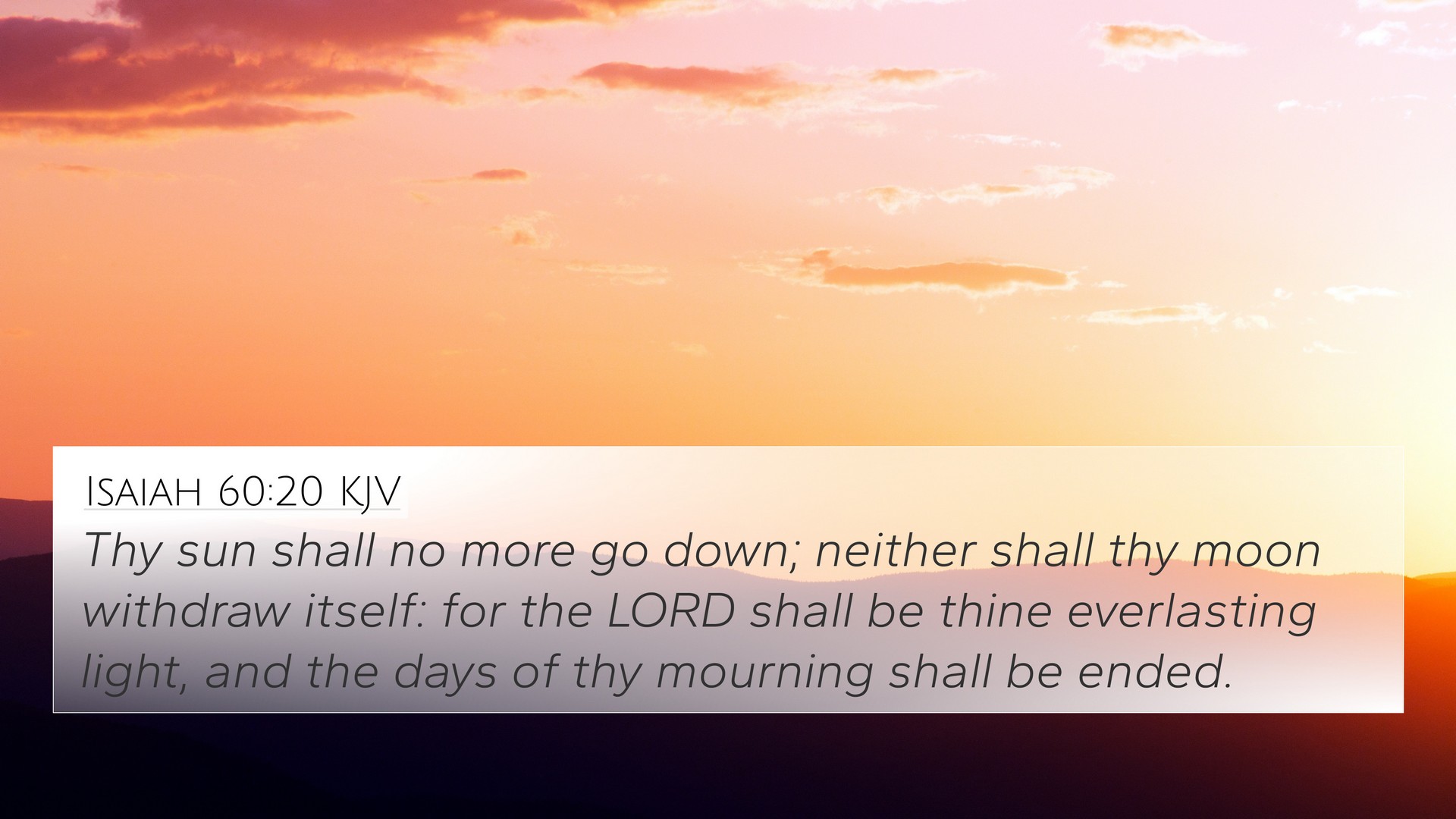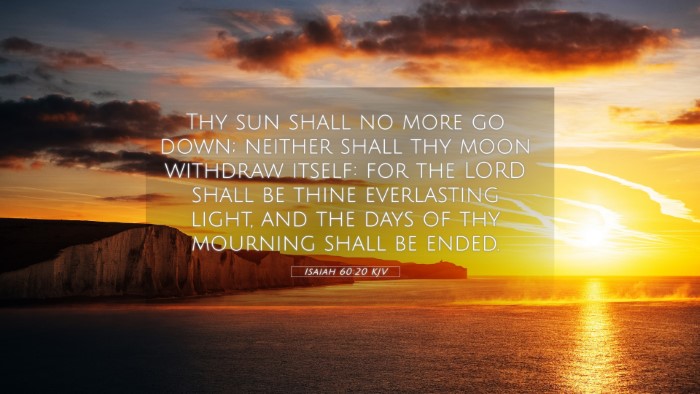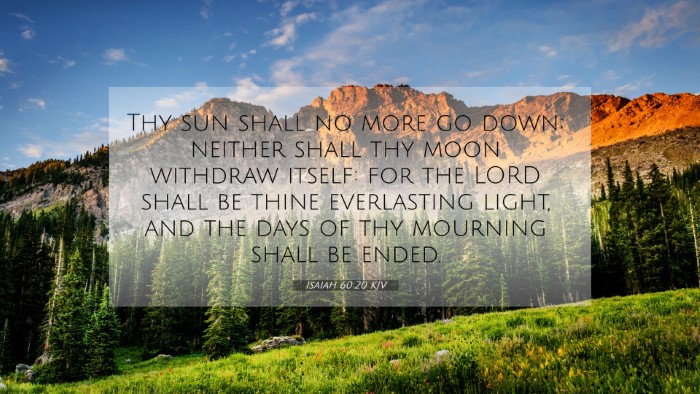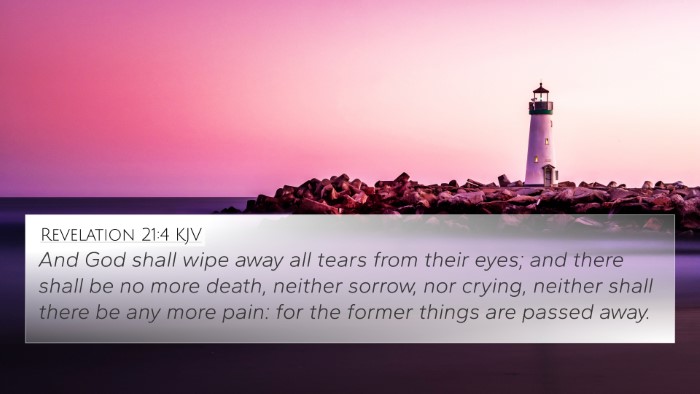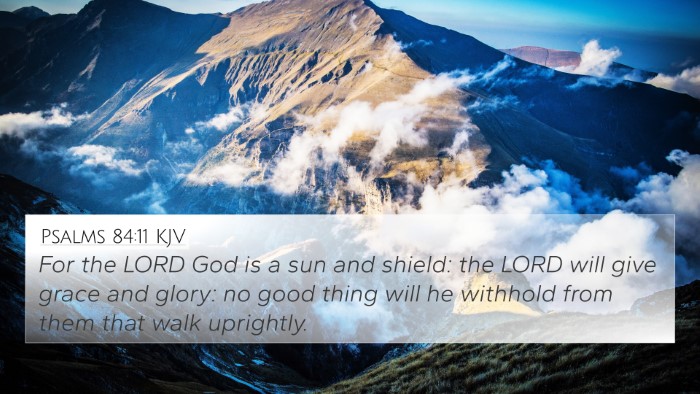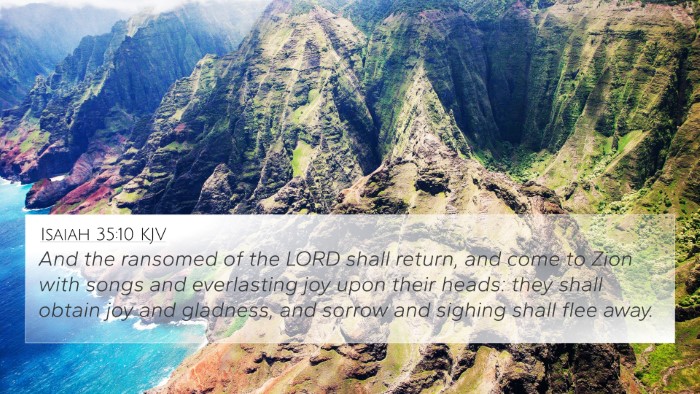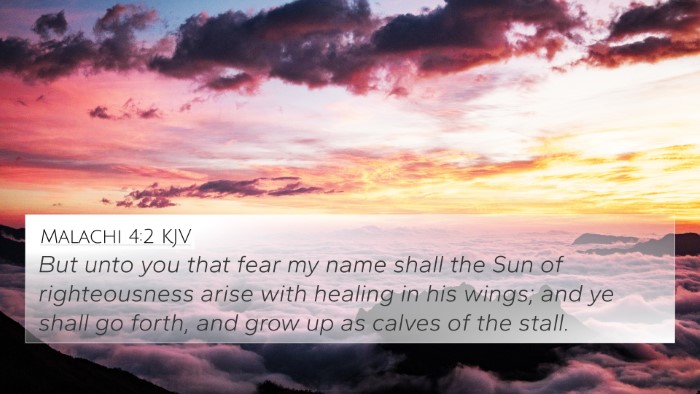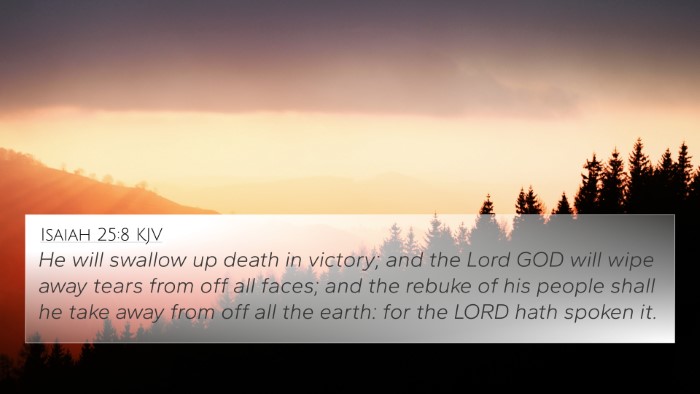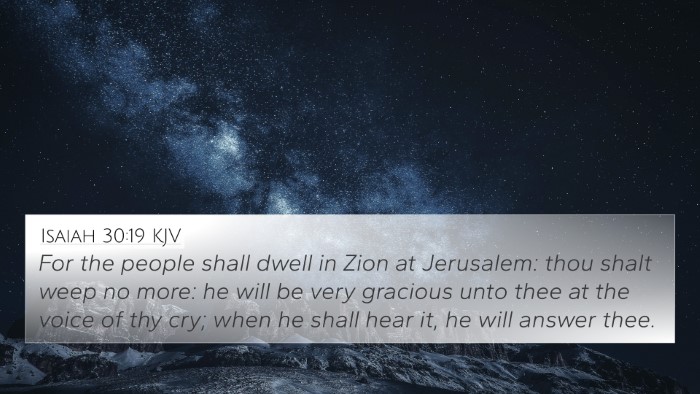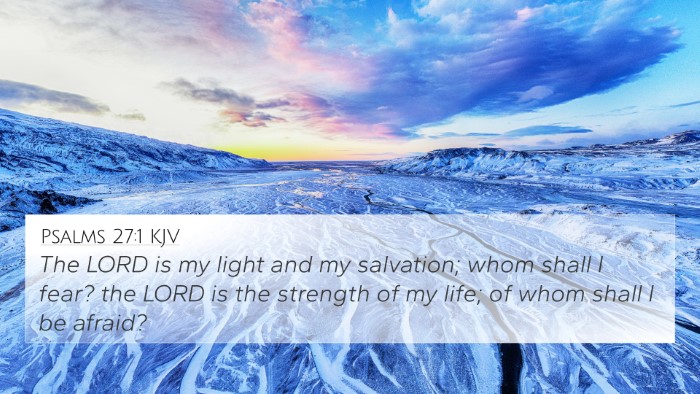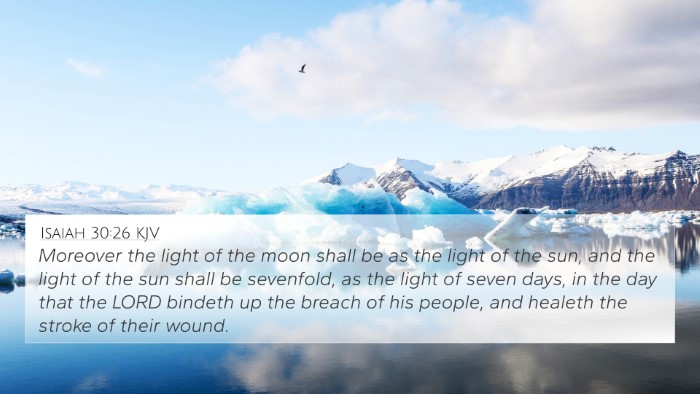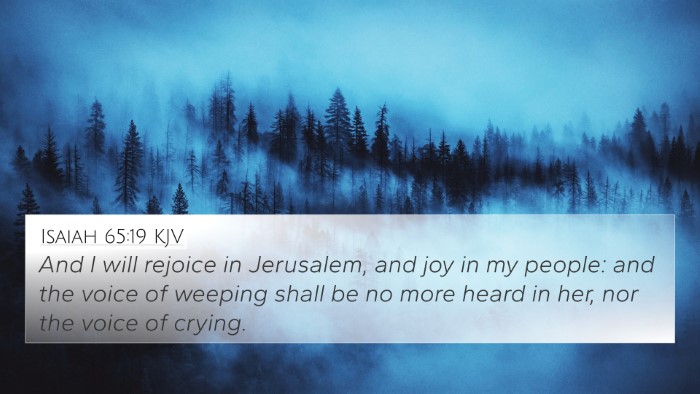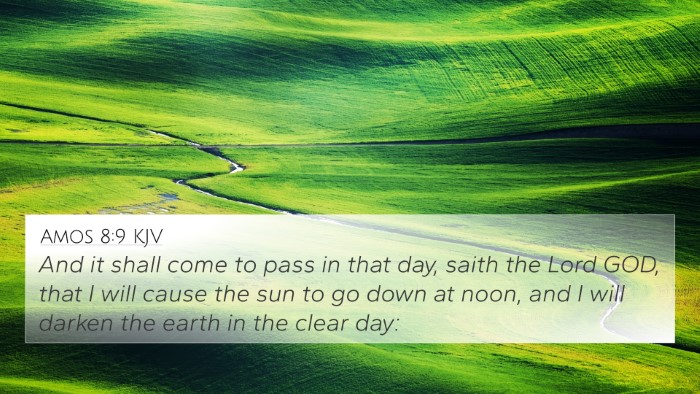Understanding Isaiah 60:20
Isaiah 60:20 states: "Your sun will never set again, and your moon will wane no more; the Lord will be your everlasting light, and your days of sorrow will end." This verse carries profound meaning and assurance, reflecting God's eternal presence and promise for His people.
Summary of Commentary Insights
The interpretations drawn from various public domain commentaries shed light on the deeper significance of this verse. Below are consolidated insights based on the works of Matthew Henry, Albert Barnes, and Adam Clarke.
Matthew Henry's Commentary
Matthew Henry emphasizes that the sun and moon symbolize the consistent and reliable light of God's presence. His commentary points out that God’s presence brings an end to sorrow and darkness, signifying a future of hope and joy for believers. This is a fulfillment of the promise of eternal life and unending joy in God’s kingdom.
Albert Barnes' Notes on the Bible
Albert Barnes elaborates on the transition from a state of despair to one of divine illumination. He describes the metaphorical language revolving around celestial bodies as a representation of God’s faithfulness. This verse indicates a future where God’s covenant people will experience perpetual joy and security, with no more instances of sorrow or abandonment.
Adam Clarke's Commentary
Adam Clarke highlights the progressive revelation of God's light through Christ, illustrating how believers will never experience spiritual darkness again. Clarke compares this verse to the triumph of God’s grace over sin and despair, reinforcing that true hope and enlightenment are found in God alone.
Cross-References Related to Isaiah 60:20
This verse can be linked to several other scriptures that enhance its meaning:
- Revelation 21:23: The city does not need the sun or the moon for light, for the glory of God gives it light, and the Lamb is its lamp.
- John 8:12: Jesus spoke to them, saying, “I am the light of the world. Whoever follows me will never walk in darkness, but will have the light of life.”
- Isaiah 60:1: Arise, shine, for your light has come, and the glory of the Lord rises upon you.
- Psalm 27:1: The Lord is my light and my salvation; whom shall I fear? The Lord is the stronghold of my life; of whom shall I be afraid?
- Lamentations 3:22-23: The steadfast love of the Lord never ceases; his mercies never come to an end; they are new every morning; great is your faithfulness.
- Matthew 5:14: You are the light of the world. A city set on a hill cannot be hidden.
- 2 Corinthians 5:17: Therefore, if anyone is in Christ, he is a new creation; the old has passed away; behold, the new has come.
- Revelation 22:5: There will be no more night; they will not need the light of a lamp or the light of the sun, for the Lord God will give them light. And they will reign forever and ever.
- Isaiah 9:2: The people walking in darkness have seen a great light; on those living in the land of deep darkness a light has dawned.
- Philippians 4:7: And the peace of God, which surpasses all understanding, will guard your hearts and your minds in Christ Jesus.
Connecting Themes in Scripture
Isaiah 60:20 illustrates a rich theme of light and hope that pervades both the Old and New Testaments. Several connecting themes can be identified:
- Divine Illumination: The theme of God as light is prevalent through various scriptures, illustrating His role as the source of wisdom and guidance.
- Eternal Life: This verse encapsulates a promise of eternal life free from sorrow, a concept echoed throughout the New Testament in the teachings of Jesus and the Apostles.
- Restoration and Renewal: The promise of an end to sorrow connects with the overall biblical narrative of restoration, which culminates in the final redemption found in Revelation.
- Heavenly Joy: The depiction of unending light correlates with the promises of eternal joy and communion with God in heaven.
- Covenantal Promises: God's commitment to His people as reflected in this verse correlates with the covenants depicted throughout the Old and New Testament.
Using Bible Cross-References
Understanding and utilizing cross-references is an essential tool for deeper biblical study. Here are some tools and methodologies:
- Bible Concordance: A useful resource for finding specific verses and locating thematic connections.
- Cross-Reference Bible Study: Engage with various verses that relate thematically to enhance understanding of specific verses.
- Bible Chain References: Following a chain of verses that lead to a specific theme or idea can deepen comprehension.
- Comparative Bible Verse Analysis: Examining similar verses side by side can reveal parallels and contrasts in message and meaning.
- Identifying Connections: Employing both Old and New Testament texts to fully appreciate the interconnectedness of God's message.
Conclusion
Isaiah 60:20 serves as a vital verse reflecting the themes of divine presence, hope, and eternal joy. The insights from various commentaries, along with the extensive cross-references, provide a comprehensive understanding of this scripture. Everyone searching for bible verse meanings, connections, or interpretations can find a rich vein of wisdom within the context of this verse and its related texts.
